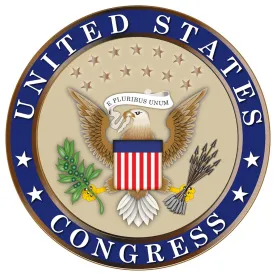As Congress faces a March 11 deadline to enact a Fiscal Year 2022 omnibus spending bill, advocates are making their case to federal legislators this week to include a tax title that delays or repeals the five-year amortization of domestic R&D expenditures, as enacted by the 2017 Tax Cuts and Jobs Act (TCJA). TCJA amended Section 174 of the U.S. Tax Code to no longer allow the immediate expensing of research and experimental expenditures beginning January 1, 2022. Multi-sector stakeholders are citing estimates from the Joint Committee on Taxation that TCJA’s change to the treatment of R&D will cost entities $8 billion in Q1 2022 new tax liabilities.
Lawmaker momentum for an R&D tax fix has intensified this Congress. Legislation in the House and Senate (H.R. 1304, Rep. Larson; S. 749, Sens. Hassan and Young) that would restore Section 174 has attracted a solid bipartisan stable of cosponsors and 15 Senators last week wrote to Majority Leader Chuck Schumer and Minority Leader Mitch McConnell urging a return to full and immediate R&D expensing.
Despite this bipartisan and bicameral support for preserving the full deduction, the crisis in Ukraine and debate over authorizing additional COVID-19 relief funds have crowded negotiations over one of the likely few legislative vehicles expected to pass Congress this year. A potential R&D tax fix also joins a list of other popular tax provisions eyed by lawmakers for possible action, such as reinstating the expanded child tax credit and employee retention tax credit. Additional considerations include:
-
Cost and implementation. In addition to financing the costs associated with these measures, Congress must reconcile whether to make any fixes retroactive to when these provisions expired – a scenario complicated by existing IRS backlogs.
-
Political perception. Certain lawmakers in vulnerable re-election races this year may be hesitant to support corporate tax changes without also passing individual-side tax relief.
However, a handful of other legislative opportunities may be available to incorporate tax changes if Congress is unable or unwilling to address R&D expensing in the upcoming Fiscal Year 2022 funding agreement, such as:
-
A potential conference agreement on U.S. competitiveness legislation (USICA/America COMPETES Act)
-
Fiscal Year 2023 appropriations
-
A post-election lame duck session to consider unresolved items, which may include tax extenders, depending upon legislative progress in this Congressional session




 />i
/>i

